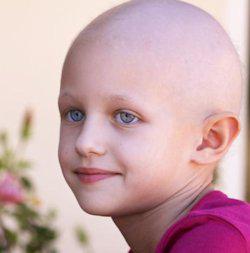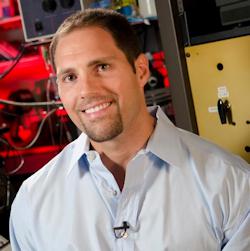Cancer Research and Your Diet
Pre-Cancers Need a Metabolic Pathway
 You will have pre-cancer cells throughout your body. Genetic mistakes happen, but they are under control. Cells that are identified as being unusual don't get encouragement from surrounding cells and switch off using a process called apoptosis.
You will have pre-cancer cells throughout your body. Genetic mistakes happen, but they are under control. Cells that are identified as being unusual don't get encouragement from surrounding cells and switch off using a process called apoptosis.
Millions of cells are eliminated from the body and are replaced every day.
Every cancer has to find a metabolic pathway to develop. A cancer needs:
(1) A blood supply. (usually poor)
(2) The ability to get nutrition. (For cancers that's almost exclusively glucose.)
(3) A means of generating energy. (Most cancers become anaerobic.)
(4) To be non-responsive to "die" signals from other cells.
Adaptations of Cancers
Most cancers are dependent on glucose for nutrition.
But cancers can adapt to use glutamine or amino-acids for energy.
LCHF Diets and Cancer
Prof Tim Noakes believes that a ![]() Banting Lifestyle is protective against cancer, because it denies the cancer enough glucose to grow successfully.
Banting Lifestyle is protective against cancer, because it denies the cancer enough glucose to grow successfully.
Prof Dominic D'Agostino
 Otto H Warburg in 1924, showed that cancer is a metabolic disease. Put in his own words, "the prime cause of cancer is the replacement of the respiration of oxygen in normal body cells by a fermentation of sugar."
Otto H Warburg in 1924, showed that cancer is a metabolic disease. Put in his own words, "the prime cause of cancer is the replacement of the respiration of oxygen in normal body cells by a fermentation of sugar."
Cancers cannot use ![]() ketones as energy, so
ketones as energy, so ![]() nutritional ketosis, weakens the metabolism of cancer cells.
nutritional ketosis, weakens the metabolism of cancer cells.
Cancers out-compete normal cells for glucose, but in an insulin restricted environment that strategy doesn't work.
Cancers are anaerobic, and are susceptible to highly concentrated oxygen.
Hence, cancers a poisoned by high pressure oxygen. Hyperbaric oxygen therapy increases the amount of oxygen your blood can carry, and this provides a treatment pathway.
High pressure oxygen is proving useful treating brain cancers, where chemo-therapy isn't possible.
Cancers are vulnerable each time the replicate themselves. They can be recognised and attacked.
Prof Eugene Fine
Cancers begin when one cell becomes abnormal. It's always benign at that time. The normal process of cell to cell signalling usually identifies that cancer and it is destroyed by apoptosis.
A cell has to duplicate it's cell mass 35 to 40 times before the mass becomes large enough to detect. During this phase it usually has to mutate more, to overcome the lack of a good blood supply.
Glycolysis (sugar splitting) provides a way for cancers to become anaerobic, but glucose dependent.
Cancers mutate to survive, but they are not very adaptable in a ketonic environment, the lack of insulin and therefore glucose is an unfamiliar environment for the cancer cells.
Ten patients with advanced cancer were put on ![]() a nutritional ketosis diet. Those who achieved a good level of ketosis were able to stabilise their cancers.
a nutritional ketosis diet. Those who achieved a good level of ketosis were able to stabilise their cancers.
Prof Craig B Thompson
Memorial Sloan Kettering Cancer Center
40 years ago cancer was a death sentence. Today that is seldom true.
Cancer is not a single enemy. Your cancer is partly about you. We've learned that we can do much in our own lives to prevent cancers.
Never start smoking. Or stop smoking NOW.
Eat well, and Exercise.
Sometimes, today, a vaccine is available.
Avoid hepatitis B which is a precursor to liver cancer.
We've recently found new ways to help the bodies own immune system fight cancer.
A gene can be inserted into T-cells to treat some leukemia patients.
